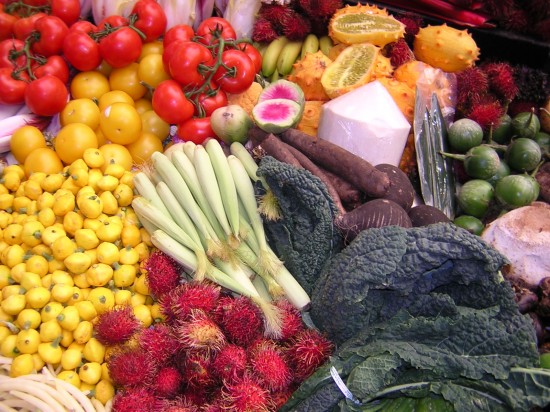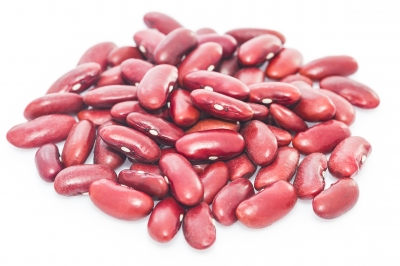 Professional Protein
Professional Protein
If you’re vegetarian, you’re bound to be asked where you get your protein on more than one occasion. Rather than roll your eyes when you’re asked for the fourth time in a week, you can use the question as an occasion to educate someone that meat isn’t the only way that you can get the protein that your body needs. You have to educate yourself on preparing healthy meals for vegetarians before you can educate anyone else.
The Facts about Protein
Just about everyone knows that protein is a big deal, otherwise everyone wouldn’t be so concerned about your protein levels. But why is protein so essential? Proteins are the foundation of life. They help promote healthy cell growth and help your cells to repair as well. Another great thing about proteins is that they can take a while to break down in your body, which means that they help you to feel full longer than other foods without you having to take in too many calories.
What’s great about vegetarian sources of protein is that they typically don’t have the same high levels of saturated fat and cholesterol that are found in dairy, eggs, and meat. Vegetarians also do not have to sacrifice the taste of meat.
Meat Substitutes
If you’re just starting to explore the wonderful world of vegetarianism, then you’re probably already aware that soy and tofu are two of the most commonly used meat substitutes and great sources of protein. You’ll be pleased to know that you’ve got several other options to choose in addition to soy chicken, soy meat crumbles, soy sausage and soy hot dogs.
Seitan is another great substitute that’s made from wheat gluten and can be made to look and taste just like regular meat. Other meat substitute options that are packed with protein include:
Tempeh
- Eggplant
- Portobello mushrooms
- Bulgur wheat
Quinoa
If you’re vegetarian, then you’ve more than likely heard of or will soon hear of a fantastic new source of protein called quinoa (pronounced, “keen-wah”). One of the best things about this little seed is that it’s one of the most versatile foods that you can find anywhere, making it easy to create meat-free healthy meals.
If you’re in need of more fiber than you are protein, then you can soak quinoa in a deep container overnight and add it to a salad that you might have for lunch. By soaking the seeds in water, it will soften, but not unravel. Fiber is great for your digestive system, and soaking your quinoa makes it extremely rich in fiber, so use it sparingly until you get used to how it affects your digestive system.
You might be baffled at how many recipes you can use quinoa in. A few examples are:
- Quinoa, fruit and nut bars
- Almond cranberry quinoa cookies
- Quinoa skillet cornbread
- Almond, coconut and banana breakfast cakes
- Pomegranate, fennel and quinoa salad

Image courtesy of Stoonn at FreeDigitalPhotos.net
Beans
Not only are beans a great source of protein, they do a much better job of helping you to feel full than other sources of protein. No matter what you like, there’s guaranteed to be a bean that fits your tastes since there are so many different varieties.
To get an idea of just how much protein beans have, think about the fact that just two cups of kidney beans have nearly 30 grams of protein. You can buy beans dried and bagged and soak them before you cook them, or you can buy them canned and simply rinse them off before you heat them up.
Legumes
Chickpeas are a great example of legumes. Much like quinoa, chickpeas and other legumes are one of the most versatile sources of protein. They can be salted, fried, pureed into a paste known as hummus or tossed into your favorite salad.
Leafy Greens
Embrace the image of vegetarians chomping down on a stalk of lettuce by getting your hands on some protein-plentiful leafy greens. Besides protein, leafy greens also have essential antioxidants, vitamins, minerals and fiber. By trying out several different kinds of vegetables and leafy greens, you’re sure to get plenty of amino acids that your body needs. Examples of leafy greens include spinach, kale, collards and broccoli.
Another great thing about eating plenty of leafy greens and other vegetables is that they can help combat diabetes, heart disease, and maybe even cancer.
Now that you know that there are so many different sources of protein, you might not have time to educate other people because you’ll be so busy trying new sources of vegetarian meat and other sources of meatless protein.
This is great information. While I love meat, my sister in Law is a vegetarian.
I’m not a vegetarian myself but do love my almonds, leafy greens, beans and fruits. I have yet to try quinoa but want to.
This is very helpful information! I am not a vegetarian, and don’t plan to become one, but I am always looking for info about healthy foods and what nutrients they can provide!
Thanks for this post. I knew beans had protein, but I didn’t know so many of these other foods had good amounts of protein, too.
I’m not a vegetarian, but I do try to eat a variety of non-meat foods to get all my vitamins and minerals in. Thanks for the great post!
I didn’t know there were so many options for meat substitutes! We usually buy veggie patties or tofu, I will have to get more adventurous!
Thanks for such an informative post. While I’m not vegetarian, I do like to eat a variety of foods, and I love learning about new options. Thanks!
I love to eat veggies! I just wish my kids were on board too!
Thank you for sharing this. My youngest refuses to eat meat which most kids do go through that stage and I have been trying to figure out how to make sure he gets everything he needs.
Thanks for sharing. I am not a vegetarian but I am trying to lose some weight so this will help.
I’m not sure I could survive as a full vegetarian but I do love the idea of some vegetarian meals every once in awhile. Thanks for all of this info!
This such an informative post, I had no idea eggplant was high in protein, no wonder me and the family are so strong lol!!
This is a great post. I have a few vegan family members and i now have a better understanding of the nutrition.
These tips are great! My family and I just became vegetarians a few months ago and it is always nice to get some new advice and health tips.
Yummy veggie ideas! Thanks for sharing.
Oh I love Quinoa, we actually swathed from rice to quinoa about a year ago. It is so much better for you and my kids love it, they call it bubble rice!
My 8 year old gave me a good old fashioned lesson a couple weeks ago. I was in the kitchen and he taught me all about the difference between beans and legumes. Which I kind of always bunched together in the same category. Oh no ma’am… it was funny.
Sending this to my niece, she’s vegetarian and recently said her protein levels were a bit low. Thanks!
Great tips, I need to be better about eating all of these! I just started cooking with quinoa and the Almond cranberry quinoa cookies sound great!
I always say I could be a vegetarian. Love portabello mushrooms, quinoa, eggplant…already serve all these food. Oh dang, now I am hungry!
We enjoy trying vegan recipes. It is easy to get the protein you need if you know what to eat. Thanks for sharing.
Eggplant is one of my FAVORITE meals! YUM!! Great foods on your list!
Awesome posts that highlights options for vegetarians. I love Quinoa right now, one of my favorites, great with mushrooms too.